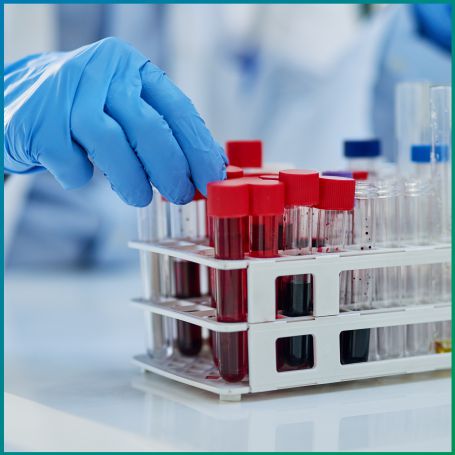
The test is particularly useful in detecting prostate cancer, bone diseases, and certain types of cancer.


The acid phosphatase test Pune is a diagnostic procedure primarily used to measure the levels of acid phosphatase enzyme in the body, which can be found in various tissues such as the liver, spleen, bone marrow, prostate, and red blood cells. It also plays a role in forensic analysis, particularly in cases involving sexual assault.
1] Acid Phosphatase:
Acid phosphatase is an enzyme that helps break down phosphate compounds in the body. While it is present in multiple tissues, elevated levels of the enzyme are typically linked to the prostate gland in men, making this test valuable for assessing prostate health.
2] Serum Acid Phosphatase:
The serum acid phosphatase test measures the amount of acid phosphatase in the bloodstream. This test is commonly used to diagnose conditions related to the prostate gland, including prostate cancer, as well as to monitor the treatment of metastatic prostate cancer. Elevated serum acid phosphatase levels can indicate damage or disease in the prostate or other organs.
3] Acid Phosphatase in Semen:
The acid phosphatase test in semen is utilized in forensic science, particularly in rape investigations, as high levels of the enzyme are typically found in seminal fluid. The presence of acid phosphatase in semen helps identify the occurrence of ejaculation and can provide evidence in criminal investigations.
The acid phosphatase test procedure is relatively straightforward. A blood sample is typically taken from a vein in your arm to measure the level of acid phosphatase in the serum. For forensic purposes, a sample of semen may also be collected and tested.
1] Blood Sample Collection: A healthcare provider will draw a blood sample from a vein in your arm. The sample is sent to a laboratory for testing.
2] Semen Sample (Forensic Purpose): In forensic cases, a semen sample is collected and subjected to testing to detect the presence of acid phosphatase.
3] Lab Analysis: The collected samples are then analyzed using specialized lab equipment to measure the amount of acid phosphatase enzyme.
The acid phosphatase normal range in the blood typically varies depending on age, gender, and laboratory standards. In general, the reference range for acid phosphatase levels is approximately 0.13 to 0.63 U/L.
At Diagnopein, we offer comprehensive, accurate, and timely diagnostic services, including the acid phosphatase test Pune. With our NABL-accredited labs, cutting-edge technology, and skilled technicians, you can be assured of reliable results every time. Get your results quickly, especially when time is crucial in detecting severe infections.
Competitive pricing without compromising on quality. Our team of experienced professionals ensures the test is conducted smoothly with minimal discomfort. We provide not just the acid phosphatase test results but insights into your health condition, helping you and your doctor make informed decisions about treatment. For more information call us at +91 9204 108108.
The test is important for diagnosing certain medical conditions such as prostate cancer, bone diseases (e.g., Paget’s disease), and liver disorders. Elevated levels of acid phosphatase can indicate these health issues, making it a critical test for early detection and treatment monitoring.
Yes, elevated levels of acid phosphatase can be linked to bone diseases such as Paget’s disease and osteomalacia. It helps doctors determine the presence and extent of bone disorders.
There is generally no special preparation required for the test. However, it’s always best to follow your healthcare provider’s instructions, which may include avoiding certain medications or supplements before the test.
The risks are minimal and similar to those of any blood test. You may experience slight discomfort, bruising, or bleeding at the site where the needle is inserted. These symptoms usually resolve quickly.